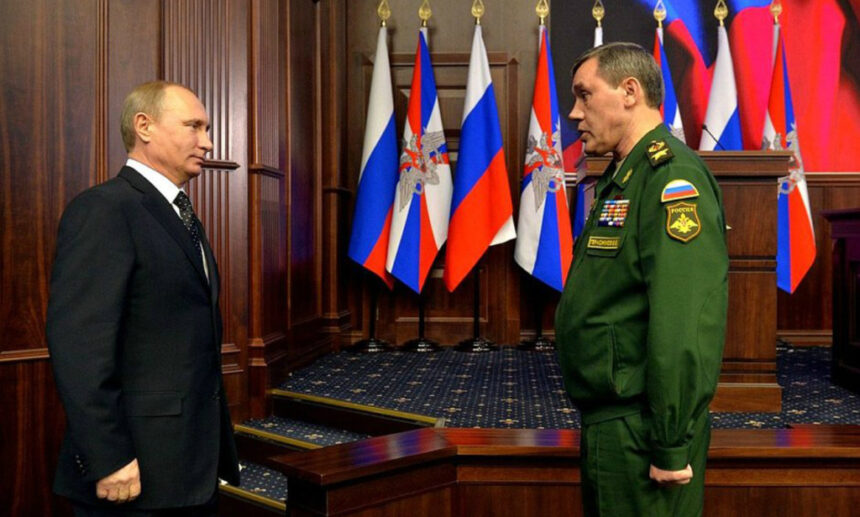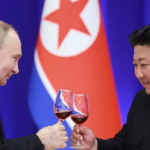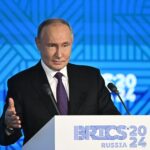Summary by Geopolist | Istanbul Center for Geopolitics
The research analyzes Russia’s hybrid strategies in the context of the global political landscape. Key points:
1. The Bricoleur Metaphor and Russia’s Strategy
Improvisational Tactics: Russia’s global strategy is akin to that of a “bricoleur,” or a resourceful tinkerer, who employs a restricted array of tools and develops solutions as they go. The traditional perception of Russia as a bureaucratic or mafia-like state is contradicted by this metaphor.
Military Innovation: Russia’s military practices involve the adaptation of traditional concepts, such as “deep operation” (Глубокaя операция), and the implementation of tactics that are designed to disrupt opponents asymmetrically. Russia’s global presence is sustained by this improvisational approach, which is frequently referred to as “bricolage,” despite the country’s substantial internal constraints.
Hybrid Warfare Elements: The Wagner Group serves as a prime example of this composite approach in hybrid warfare. Initially established as a private military company to advance Russian interests internationally, Wagner demonstrated adaptability by leveraging local resources and capitalizing on vulnerabilities in unstable nations. Nonetheless, this flexibility rendered Wagner structurally susceptible, leading to the instability and ultimate collapse of its leader, Yevgeny Prigozhin.
2. Operational Challenges and Weaknesses
Reliance on Ad Hoc Solutions: Although Russia’s bricolage strategy achieves immediate results, it frequently fails to deliver sustained operational effectiveness over the long term. In the ongoing Ukraine conflict, Russia has effectively responded to immediate requirements, such as modifying armoured vehicles to counter FPV drones. Nonetheless, ongoing technological and logistical constraints on a larger scale persist in obstructing sustained military success.
Limited Resilience of Wagner Group: The Wagner Group exhibits limited resilience; notwithstanding its extensive reach and influence in Africa and the Middle East, its operations are hindered by internal weaknesses and instability in leadership. Prigozhin’s mutiny in 2023 and his subsequent death highlighted the instability of Wagner’s structure, which appeared to be more of a temporary solution than a viable component of Russian foreign policy.
3. EU Countermeasures and Strategic Recommendations
Highlighting Contradictions: The EU is urged to uncover inconsistencies within Russia’s “bricoleur” system, demonstrating the ad hoc and precarious characteristics of its governance and military framework.
Tightening Dual-Use Technology Controls: The EU is advised to enhance export controls on dual-use technologies, such as electronics and aerospace components, to limit Russia’s ability to “improvise” weaponry. This is crucial because Russia’s approach significantly depends on the modification of civilian technologies for military applications.
Building Democratic Resilience: Highlighting the importance of a robust democratic foundation in Europe is essential to mitigate Russian influence and hybrid strategies. This encompasses enhancing transparency and public understanding of Russia’s operations while intensifying the repercussions of its actions internationally, particularly in regions where it utilizes PMCs and capitalizes on local resources.
4. Impact of EU Sanctions
Sanction Packages on Dual-Use Items: Sanction packages on dual-use items have been intensified by the EU since 2022, with a focus on Russian access to dual-use products in critical sectors. This encompasses limitations on electronics, pharmaceuticals, UAV components, and other materials that are indispensable for Russian defence and industry.
Shifts in Supply Chains: These sanctions have compelled Russia to modify its supply chains, frequently depending on less dependable sources or domestic alternatives. This situation has, nonetheless, resulted in increased costs and a deceleration of production, especially within high-tech sectors where Russian capabilities are currently underperforming.
5. The Myth of “Normative Power Russia”
Ideological Hypocrisy: Russia positions itself as a stronghold of “traditional values” in opposition to Western influence, attracting authoritarian regimes and conservative leaders. This position frequently contrasts significantly with its behaviours, as evidenced by its military aggression and exploitative relationships in the Global South.
Exposing the Narrative: The EU and its allies should actively contest this depiction by highlighting Russia’s historical patterns of imperialism and its inability to provide genuine security or economic stability in the areas it engages with.
6. Long-Term Implications for Global Power Dynamics
Western Responses to Bricolage Tactics: The EU’s proposed strategy highlights the importance of resilience and adaptability in addressing Russia’s hybrid tactics. Through the reinforcement of its democratic principles and the implementation of stricter technology regulations, the EU can effectively limit Russia’s capacity to operate as a bricoleur in the international arena.
In summary, the study highlights the limitations of Russia’s bricolage approach, which, although effective in establishing temporary influence, fails to foster enduring alliances. The EU’s counter-strategies aim to expose these shortcomings and increase the costs of Russia’s interventionism, particularly in resource-rich regions like Africa.
It also presents a nuanced view of Russia’s approach, stressing that its strengths in adaptability are counterbalanced by its internal weaknesses and dependency on stopgap solutions. The EU’s suggested countermeasures aim to leverage these vulnerabilities to mitigate Russian influence over time.
Read more below.







